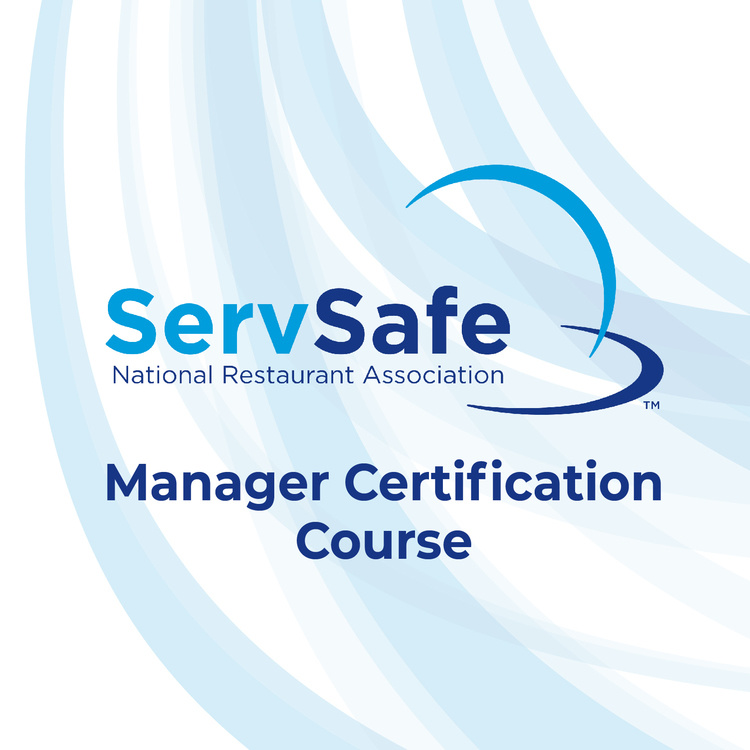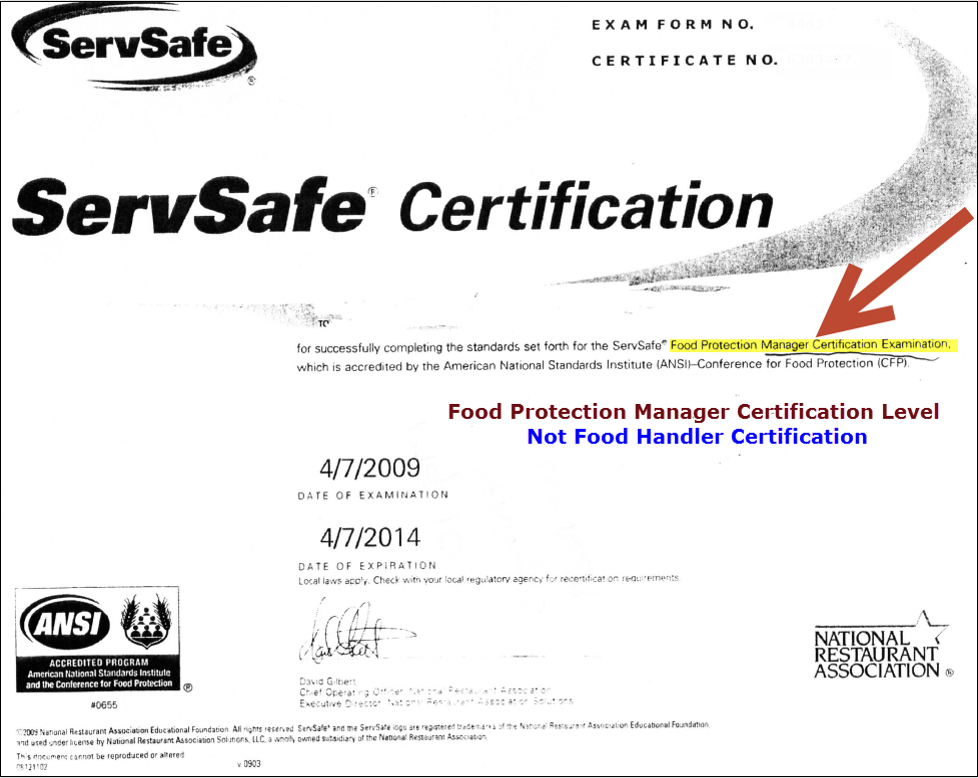What You Required to Learn About the ServSafe Food Manager Certification Refine
What You Required to Learn About the ServSafe Food Manager Certification Refine
Blog Article
Specialist Training for Food Manager Certification Made Simple
The importance of food supervisor certification can not be understated, especially in a period where food safety is critical. Specialist training programs have progressed to enhance the accreditation procedure, providing important expertise and sensible abilities needed for reliable food monitoring.
Value of Food Supervisor Certification
The relevance of Food Supervisor Accreditation can not be overstated in today's food solution market. This accreditation represents that food supervisors have the vital understanding and abilities to make sure food safety, preserve wellness standards, and support regulative compliance. In an age where foodborne ailments can have serious consequences, the role of a qualified food supervisor becomes crucial in securing public wellness.
Food Manager Accreditation not only furnishes people with the experience to recognize and reduce food safety threats however additionally enhances the reputation of the facility. Consumers are progressively discerning; they look for guarantee that their eating experience is sanitary and secure. Accreditation functions as a mark of professionalism that can bring in and maintain consumers.
In addition, regional jurisdictions and lots of states mandate that establishments employ certified food supervisors to adhere to health laws. This demand highlights the qualification's importance in preventing prospective legal implications and penalties. Furthermore, a qualified food supervisor can lead team training, promoting a culture of safety and security and liability within the workplace. Buying Food Supervisor Qualification is a financial investment in top quality, safety, and the total success of food service procedures.
Summary of Expert Training Programs
Specialist training programs for food manager accreditation are developed to offer comprehensive education and learning on food safety methods, regulative compliance, and danger monitoring. These programs aim to gear up food service experts with the understanding and skills essential to ensure safe food handling and preparation in numerous settings, including restaurants, providing services, and institutional food procedures.
Generally, expert training programs encompass both sensible and theoretical components, permitting individuals to engage with real-world circumstances. The educational program frequently consists of crucial subjects such as foodborne ailments, appropriate food storage space strategies, hygiene methods, and employee training approaches. Additionally, these programs are regularly upgraded to line up with the most current industry requirements and guidelines, guaranteeing that participants receive pertinent and existing details.
Many programs offer flexible distribution methods, including in-person courses, on the internet training courses, or a hybrid technique, satisfying various learning choices and routines. Upon effective completion, individuals usually obtain certification, which is typically acknowledged by regional wellness departments and regulatory firms, improving their career prospects within the food solution market. Generally, professional training programs play a critical role in cultivating a society of food safety and conformity among food supervisors and team.
Key Subjects Covered in Training
Food security is a critical emphasis in food supervisor certification training, encompassing a variety of vital topics that make certain participants are well-equipped to deal with food securely. One of the key topics covered is the value of individual health, which consists of appropriate handwashing methods and the value of maintaining sanitation in cooking locations.
In addition, the training addresses foodborne diseases, detailing the different microorganisms that can contaminate food and the signs and symptoms associated with these health problems. Individuals learn more about the conditions that advertise microbial development, which is vital for avoiding outbreaks.
Temperature control is one more essential subject, emphasizing the risk-free food preparation, air conditioning, and storage temperatures needed to lessen threats. The training additionally covers cross-contamination prevention approaches, making sure that raw and cooked foods are taken care of appropriately to prevent damaging interactions.
Furthermore, food safety regulations and guidelines, such as those set forth by the FDA and neighborhood wellness departments, are talked about to offer a thorough understanding of conformity demands. Lastly, effective Discover More Here pest control measures are checked out to protect food facilities from problems that can jeopardize security. Jointly, these subjects lay a solid foundation for safe food monitoring practices.
Advantages of Expert Training
How can expert training enhance food security methods within an establishment? Specialist training outfits food supervisors with comprehensive understanding of food safety guidelines, industry criteria, and ideal methods. This foundational understanding is vital for keeping a safe and tidy food preparation atmosphere, ultimately reducing the threat of foodborne illnesses.
Additionally, specialist training cultivates an aggressive method to food security by highlighting precautionary steps and hazard evaluation. Managers trained by industry experts can properly recognize potential risks and carry out strategies to mitigate them. This not just safeguards customers yet also improves the establishment's reputation and dependability.
Additionally, expert training motivates a culture of continual improvement. Food managers who participate in recurring education are better prepared to adapt to new guidelines and patterns in the food service sector. This versatility can cause enhanced operational effectiveness and cost savings.


Steps to Accomplish Accreditation
Achieving qualification in food management needs a systematic strategy that encompasses numerous key actions. People need to pick a recognized training program that uses comprehensive coursework in food administration, security, and sanitation principles - Manager Certification Training. These programs typically supply important sources, consisting of research products and practice exams
Following, candidates should actively participate in the training sessions, whether on the internet or in-person, to enhance their understanding of important topics such as foodborne ailments, why not check here personal hygiene, and correct food storage techniques. Participation in conversations and practical workouts can additionally reinforce understanding.

When adequately ready, candidates can take the exam and schedule. Effective conclusion usually needs achieving a certain passing rating, which demonstrates a comprehensive understanding of food security standards.
Verdict
In recap, specialist training for food manager certification plays a critical role in ensuring food safety and security and compliance with governing standards. Inevitably, achieving food manager qualification through expert training not just raises individual expertises yet likewise fosters a safer food atmosphere for all.

Expert training furnishes food managers with comprehensive knowledge of food safety guidelines, market requirements, and ideal techniques.In summary, specialist training for food manager certification plays an important role in making sure food safety and compliance with regulative standards (Manager Certification Training). Eventually, attaining food manager qualification via professional training not just raises specific competencies yet additionally fosters a much safer food environment for all
Report this page